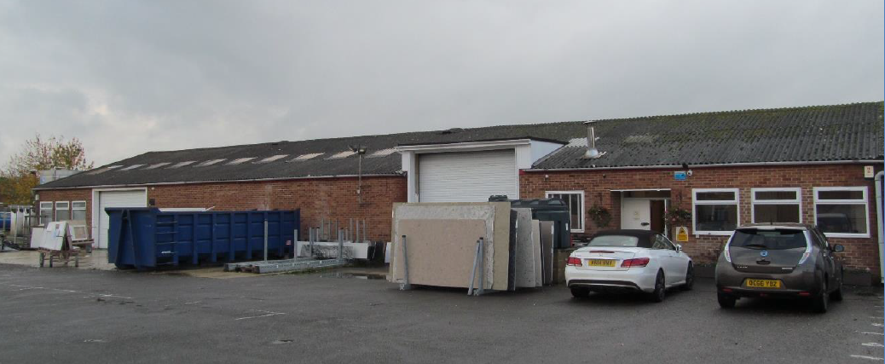
Granite House chips away at carbon emissions
The Granite House is a stone shop specialising in granite, based in Bicester, where they rent premises containing a workshop, office, and showroom. The team had become increasingly aware of the need to do something about their environmental impact so underwent an Energy Assessment from our team.
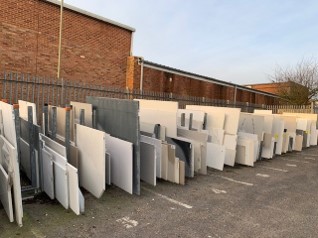
The Granite House has a long-term lease at a premises on an industrial estate in Bicester, Oxfordshire, with the buildings dating to the 1970s.
Their premises consists of a large workshop where they cut and shape materials, an office for staff (including toilets and kitchenette), and a showroom for potential customers to explore the granite options, so a real mix of energy use.
Motivation for energy improvements
The team at The Granite House has been growing more conscious of the pressing issue of climate change and the need for action. Recognising the importance of making positive changes in both their personal lives and workplace, they are committed to implementing sustainability measures to contribute to a greener future.
They knew that energy would be a large factor in the carbon footprint of the business, with an energy use of over 96,100 kilowatt hours each year, at an annual cost to their business of over £12,000.
“My colleagues and I have become increasingly aware of the need to be greener, both in our personal lives and at work. Our primary reason for engaging with energy efficiency was a moral one, rather than a financial.”
Tim Rotherham, Owner of The Granite House
Making improvements
The Granite House underwent a comprehensive energy assessment which evaluated their current energy consumption and identified potential areas for efficiency improvements.
The audit highlighted several key recommendations for enhancements, including the installation of LED lighting coupled with absence detectors, integrating radiant heaters within their workshop, and upgrading their front door.
21,202 kWh
predicted annual energy saving
1.54 tonnes
predicted annual carbon saving
£5,618
predicted annual cost saving
Following the recommendations outlined in the Action Report would result in substantial improvements. It’s predicted that these measures could save approximately 21,202 kWh of energy annually, reducing carbon dioxide emissions by 1.54 tonnes and cutting energy bills by an estimated £5,618.
Replacing the front door
Previously, they had been using a 30-year-old fire door as the main entrance to the premises, which was neither well-fitted nor adequately insulated. Given the frequent visits from guests and customers to the showroom, the door was often left open, contributing to heat loss. The newly installed replacement door is now tightly fitted and well-insulated, addressing these issues effectively.
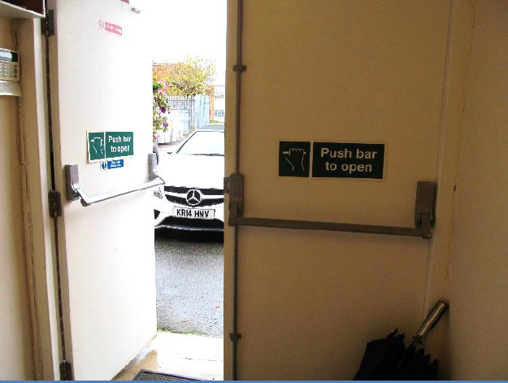
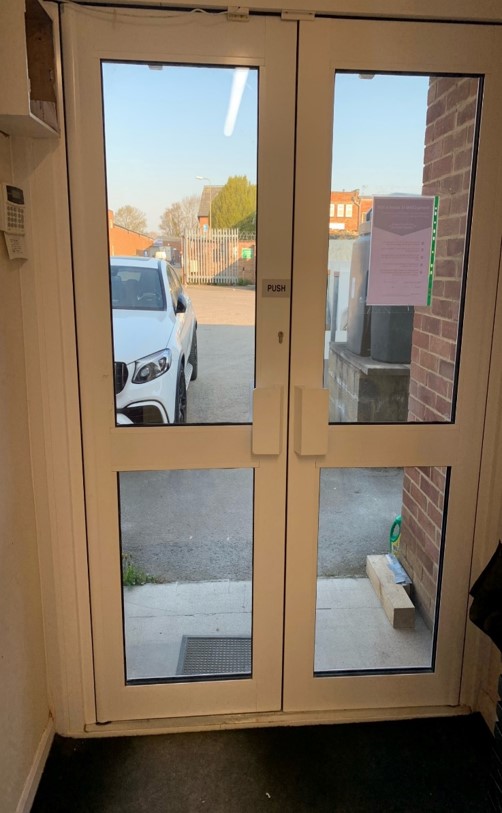
Heating system
The premises previously relied on two heating systems: an oil-fired air blown heating system in the workshop and electric heaters in the office. However, the oil-fired system in the workshop was insufficient in adequately heating the space, resulting in discomfort for the staff during work hours.
To address this issue, three infrared radiant heaters were installed in the workshop. These heaters are known for their ability to quickly and directly heat specific workstations. As a result, there is now reduced dependency on the oil-fired heater, leading to decreased consumption of fossil fuels for heating the premises.
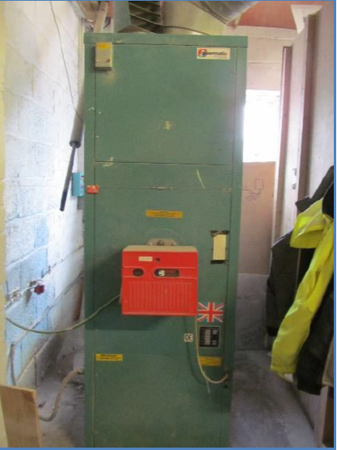
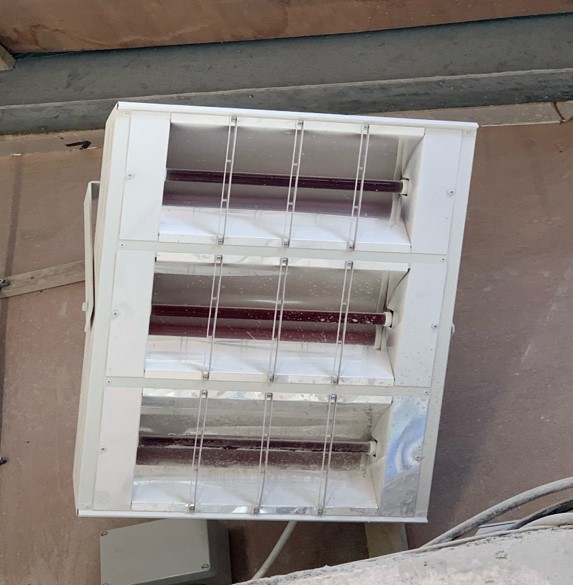
Lighting: LEDs and absence detectors
Five lighting fixtures were replaced with LED lights – which are more energy efficient and last much longer than traditional bulbs so bring both cost and carbon savings.
There were also two absence detectors installed in the staff breakroom which automatically turn off lights when the room is unoccupied, avoiding wasted energy on lights which didn’t need to be on.
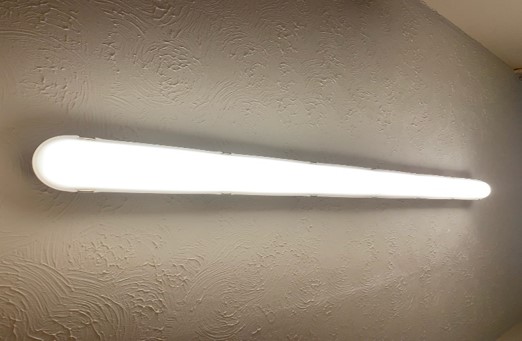
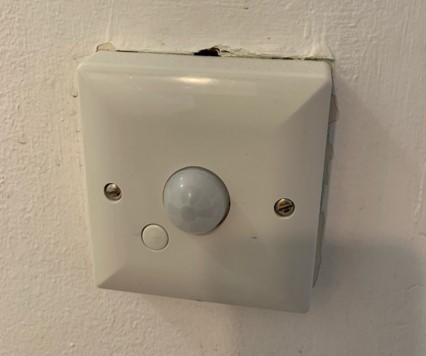
What’s next for The Granite House?
The team’s commitment didn’t end there! With an ambitious goal to become the first carbon-neutral stone shop in the UK, The Granite House started planning further improvements. Plans include enhancing roof insulation and transitioning some delivery vehicles to electric models.
However, one significant obstacle they’ve encountered on their journey to carbon neutrality is the time it takes to recoup costs. While upfront investments are made in these enhancements, it often takes a while to realise the savings on energy bills. However, they working hard to reduce their impact where they can.
Discover how you could be saving energy with an Energy Assessment
Are you inspired to reduce your energy waste? We can help. Book an Energy Assessment with our expert team and find out how you manage your energy to save money on your bills and cut your carbon emissions. Businesses typically save 19% on energy costs after implementing our recommendations.
